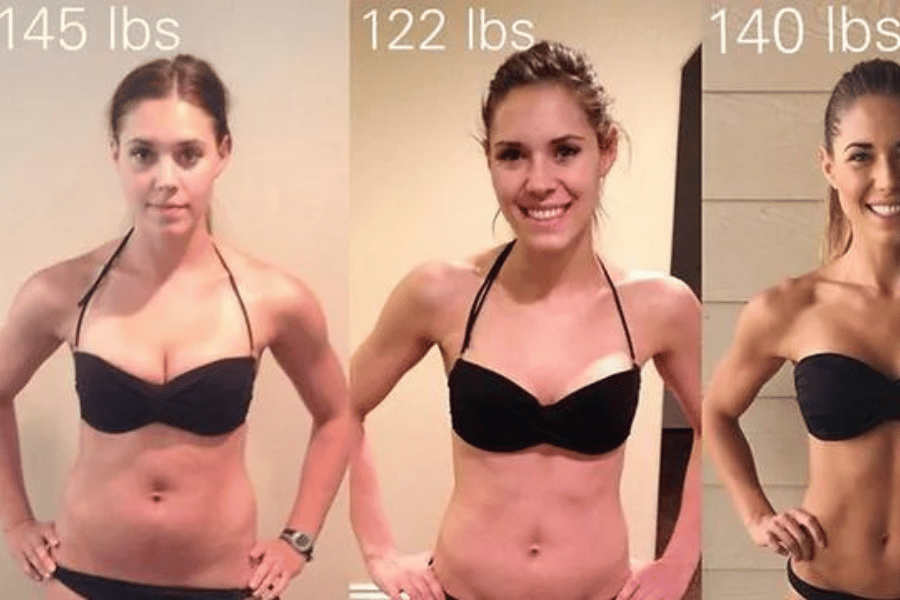Welcome to the journey of unlocking the secrets to winter weight loss, especially for those navigating the challenges of menopause-related weight gain. As the temperature drops and the days grow shorter, shedding those extra pounds can seem like an uphill battle. But fear not, for we are about to embark on a path that embraces the concept of “cold weather calorie burn.”
Menopause brings with it a host of changes, and one of the most common concerns is weight gain, often concentrated around the abdominal area. This added weight can be particularly stubborn during the winter months when outdoor physical activity tends to dwindle. However, by understanding the unique dynamics of winter weight management and implementing the right strategies, you can achieve your weight loss goals even in the chilliest season.
In this comprehensive guide, we’ll delve into the fastest way to lose ten pounds in cold weather. From winter-friendly exercises to dietary modifications and daily activity boosts, we’ll explore proven methods to help you shed those unwanted pounds effectively. We’ll also discuss the role of metabolism-boosting foods, hydration in winter, and the importance of sleep and stress management in your weight loss journey.
So, if you’re ready to embrace winter weight loss success, keep reading. We’re here to provide you with valuable insights and practical tips to make your journey enjoyable and achievable. Let’s make this winter your season of transformation and empowerment!

Understanding Menopause and Its Impact on Weight
In this section, we will delve into the intricate relationship between menopause and weight gain, shedding light on the hormonal changes that often result in increased body weight, particularly around the abdominal area. It’s essential to comprehend the additional challenges faced in managing one’s weight during the winter season when physical activity tends to decline. Moreover, we will underscore the significance of taking proactive steps to counteract the common phenomenon of winter weight gain, especially for women experiencing the transformative phase of menopause.
Menopause, a natural phase in a woman’s life, is accompanied by hormonal fluctuations, notably the decline in estrogen levels. These hormonal changes can have a significant impact on a woman’s body composition, often leading to weight gain. Many women find that they gain weight, especially around the abdominal area, during and after menopause.
Now, during the winter season, when the weather turns colder and days grow shorter, the desire for physical activity often decreases. This creates an added challenge for those already dealing with menopause-related weight gain. However, it’s crucial to recognize the importance of addressing this issue, as excess weight during menopause can increase the risk of various health conditions.
The combination of menopause and winter weather can create a perfect storm for weight gain, making it crucial to understand these dynamics and take proactive steps. As we progress through this guide, we will explore effective strategies to combat winter weight gain during menopause, providing you with the tools and knowledge needed to achieve your weight loss goals.
Exploring the Fastest Way to Lose Ten Pounds in Cold Weather
In this section, we will explore practical strategies and tips for achieving a significant weight loss goal of shedding ten pounds during the cold winter months. We understand that losing weight can be challenging, especially in winter, but with the right approach, it’s entirely achievable.
Tip 1: Winter-Friendly Exercises
The Benefits of Indoor Workouts
Indoor workouts, such as aerobics, yoga, and strength training, offer an excellent alternative to outdoor activities during the winter season. According to the American Heart Association, indoor exercises can help burn calories and improve cardiovascular health, making them effective for weight loss, even in colder months.
Cold-Weather Sports
Engaging in cold-weather sports like ice skating, skiing, or snowboarding not only provides an enjoyable way to stay active but also helps you burn calories. According to the International Journal of Sports Science & Coaching, these sports can significantly contribute to calorie expenditure.
At-Home Fitness Routines
For those who prefer to stay home during winter, at-home fitness routines are a viable option. You can find various workout programs online, and some of them are specifically designed for cold weather fitness.
Tip 2: Diet Modifications
Consuming Warming Foods
Incorporate foods that naturally generate warmth in the body, such as ginger, garlic, and spicy peppers. These foods can increase metabolism and assist in calorie burning, as mentioned in a study published in the International Journal of Food Sciences and Nutrition.
Reducing Portion Sizes
Be mindful of portion sizes during winter. According to the American Journal of Clinical Nutrition, reducing portion sizes can lead to weight loss. Practicing portion control can be particularly effective during the holiday season when indulgent meals are common.
Increasing Fiber Intake
Fiber-rich foods like whole grains, fruits, and vegetables are filling and can help control hunger. The Journal of Nutrition suggests that a high-fiber diet can lead to weight loss.
Tip 3: Daily Activity Boosts
Take the Stairs
Choosing the stairs over the elevator whenever possible is a simple way to add extra physical activity to your day. Harvard Medical School states that stair climbing burns calories and improves cardiovascular fitness.
Parking Farther Away
When going shopping or to work, park your car farther away from your destination. The extra walk can contribute to your daily calorie burn.
Short, High-Intensity Workouts
Incorporating short, high-intensity workouts into your daily routine, known as high-intensity interval training (HIIT), can be an efficient way to burn calories. HIIT workouts have been shown to be effective for weight loss, according to a study in the Journal of Obesity.
Tip 4: Metabolism-Boosting Foods
Lean Proteins
Lean proteins like chicken, fish, and tofu can boost metabolism and help with weight loss. A study published in the American Journal of Clinical Nutrition suggests that protein-rich diets can enhance calorie burning.
Spices
Spices like cinnamon, cayenne pepper, and turmeric have thermogenic properties that can increase metabolism and contribute to calorie burn, as mentioned in the journal Critical Reviews in Food Science and Nutrition.
Hot Beverages
Hot beverages like green tea and black coffee can temporarily boost metabolism due to their caffeine content. Additionally, herbal teas can aid in digestion and hydration, which is essential for weight loss.
These strategies provide a comprehensive approach to achieving your winter weight loss goals, even during menopause. By combining winter-friendly exercises, dietary modifications, daily activity boosts, and metabolism-boosting foods, you can embark on a successful weight loss journey in cold weather. Throughout this section, we have referenced various studies and sources to support these strategies.
Implementing Winter Weight Loss Strategies
Now that we’ve discussed various strategies and tips for winter weight loss, it’s time to put these ideas into action. In this section, we will provide practical advice on how to implement these strategies into your daily routines and create a winter weight loss plan that works for you.
Creating Your Winter Weight Loss Plan
- Set Clear Goals: Start by setting specific and achievable weight loss goals. Determine how many pounds you want to lose during the winter season and set a realistic timeframe for achieving your target.
- Choose Your Exercises: Based on your preferences and fitness level, select the winter-appropriate exercises that resonate with you. Whether it’s indoor workouts, cold-weather sports, or at-home fitness routines, consistency is key.
- Meal Planning: Plan your winter meals thoughtfully. Incorporate warming foods like soups, stews, and lean proteins into your diet. Remember to control portion sizes and increase fiber intake for better results.
- Stay Active Daily: Make it a habit to stay active every day. Take the stairs whenever possible, walk more, or dedicate time to short, high-intensity workouts. Consistent daily activity will contribute to calorie burn.
- Metabolism-Boosting Foods: Include metabolism-boosting foods in your daily meals. Lean proteins, spices, and hot beverages can help kickstart your metabolism and aid in weight loss.
- Hydration: Don’t forget to stay hydrated, even in the cold weather. Opt for warm herbal teas as a hydrating option. Proper hydration is essential for overall health and weight loss.
- Prioritize Sleep and Stress Management: Focus on improving your sleep quality and reducing stress. Create a sleep-friendly environment and practice stress-reduction techniques like meditation or yoga.
- Track Your Progress: Keep a journal to track your progress. Record your workouts, meals, and any challenges you face. Regularly review your journal to stay motivated and make necessary adjustments.
- Stay Accountable: Share your weight loss journey with a friend or family member who can provide support and hold you accountable. Accountability can be a powerful motivator.
- Reward Yourself: Celebrate your achievements along the way. When you reach milestones in your weight loss journey, treat yourself to something you enjoy, but remember to keep it in moderation.
By creating a personalized winter weight loss plan based on the strategies discussed earlier, you can overcome the challenges of cold weather and menopause-related weight gain. Remember that consistency, determination, and a positive mindset are your allies in achieving your winter weight loss goals. Keep moving forward, and you’ll embrace winter weight loss success.

Conclusion
The path to winter weight loss, especially for those facing menopause-related weight gain, may seem challenging, but it’s entirely achievable with the right strategies. We’ve explored various tips and insights, from winter-friendly exercises to diet modifications, daily activity boosts, metabolism-boosting foods, hydration, sleep, stress management, and setting realistic goals.
Now, armed with these tools, it’s your turn to take action and embrace your winter weight loss success. Remember that consistency and determination are your allies on this journey. Start implementing these strategies today and make the most of the cold weather calorie burn.
We’re interested in hearing your thoughts and experiences. Have these insights been helpful to you? Are there any additional topics or questions you’d like us to cover in the future? Your feedback is valuable, and we look forward to continuing this conversation on winter weight loss. Share your thoughts below!
FAQs: Winter Weight Loss Queries
Q1: Is it really harder to lose weight during the winter months?
A1: Yes, it can be more challenging to lose weight in the colder months. The combination of reduced physical activity and seasonal cravings for comfort foods can contribute to weight gain. That’s why it’s essential to adopt winter-specific strategies for successful weight loss.
Q2: Are there specific exercises suitable for winter weight loss?
A2: Absolutely! Winter-friendly exercises like indoor workouts, cold-weather sports, and at-home fitness routines are effective for burning calories during winter. These activities help you stay active despite the cold weather.
Q3: How can I modify my diet for winter weight loss?
A3: You can make simple diet modifications, such as consuming warming foods, reducing portion sizes, and increasing fiber intake. Winter-specific meal ideas and recipes can also support your weight loss goals.
Q4: What are metabolism-boosting foods, and how can they help?
A4: Metabolism-boosting foods like lean proteins, spices, and hot beverages can enhance your metabolism and aid in weight loss. These foods help your body burn more calories efficiently.
Q5: Why is hydration important during winter weight loss?
A5: Staying well-hydrated is crucial for weight loss in cold weather. Herbal teas and warm beverages can help you stay hydrated while providing a comforting and satisfying experience.
Q6: How does sleep and stress management affect weight loss during winter?
A6: Adequate sleep and stress management play significant roles in weight loss, especially during menopause and the winter season. Improving sleep quality and reducing stress can positively impact your weight loss journey.
Q7: What’s the key to setting realistic weight loss goals?
A7: Setting achievable weight loss goals is essential. When aiming to lose ten pounds, start with small, attainable milestones. Gradual progress is more sustainable and less daunting.
Q8: How can I stay motivated during winter weight loss?
A8: Maintaining motivation in cold weather can be challenging. Implementing the tips and strategies discussed in this article, along with finding a support system, can help you stay on track and motivated.